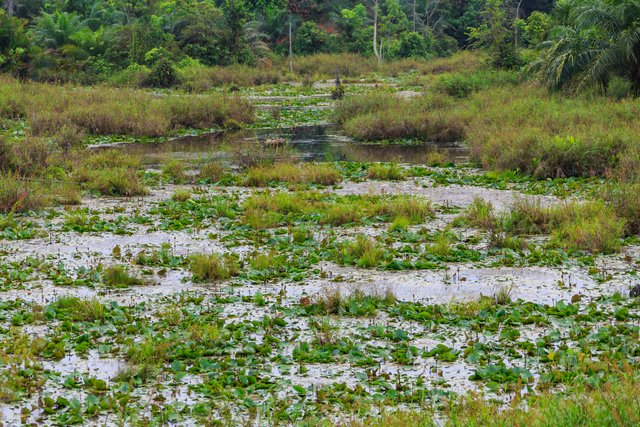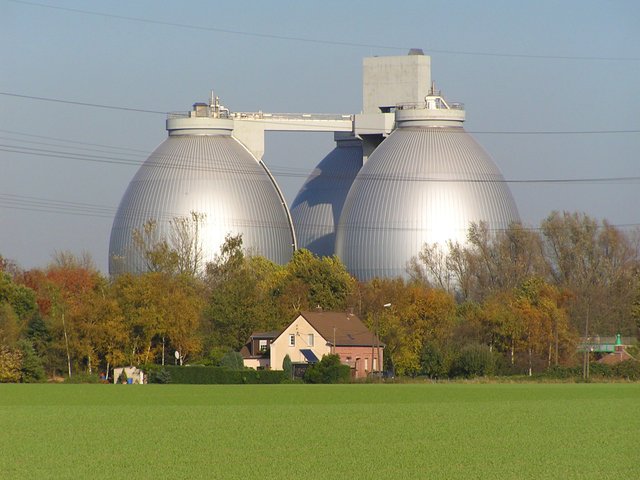Indirect value of nature: How the aquatic systems provide water treatment to break down pollution
Welcome to the first post in the series about the indirect value of nature and biodiversity. In this post, I am going to talk about a very important ecosystem service that is provided by aquatic ecosystems, in which they are responsible for waste-water treatment.
In many different aquatic ecosystems such as swamps, rivers, lakes, tidal marshes, estuaries, coral reefs, the open ocean and flood plains, we have many different species that are able to break down and immobilize toxic pollutants. These can include toxic such as heavy metals and pesticide, which would be harmful to most other species in other ecosystems. The main types of species that are responsible for these ecosystem services are bacteria and fungi, which have unique metabolic pathways that allows them to break down these pollutions into smaller molecules, and making them less harmful to the environment.
We have some degree of this ecosystem service in most aquatic system, but of course we still need to monitor our pollution, because these species can only break down a certain amount before the entire ecosystem gets damaged. So we must still limit how much pollutants we release into the water, even with many aquatic ecosystems nearby.

This swamp is providing us with a good amount of waste and pollution treatment. Photo by CEphoto, Uwe Aranas / CC-BY-SA-3.0.
How much is this ecosystem service worth?
If humans would have to do this cleaning ourselves, estimates of producing enough treatment facilities and operation them would cost $2 trillion every year. A single treatment facility to replace a somewhat large swamp in an area would easy cost a few billion dollars to produce, and millions to keep operating. (Source for this number: Essentials of Conservation Biology, sixth edition by Richard B. Primack, chapter 5).
It is safe to say that the free ecosystem service we get from these aquatic systems are really great for both our health and our wallets, and preserving these ecosystems is of course also very good for other reasons as well.

This is what a waste-water treatment facility looks like. I for one would much rather have some aquatic ecosystems in my neighborhood than this. Image by Daniel Ullrich, Threedots, posted with the Creative Commons Attribution-Share Alike 3.0 Unported license.
Perhaps we should focus more on the conservation efforts of these systems?
The problem with a lot of these ecosystems, such as swamps, is that people don’t generally care too much about conserving them. A lot of swamps are currently getting drained in order to be able to use its water for agriculture, and this will in time completely ruin the swamp, leaving the species that break down pollution dead. This in turn means we would need to install a good waste-water treatment facility in its place, costing billions of dollars.
Most places cannot afford to create the needed facilities once their swamps or other aquatic ecosystems dries up, leaving the entire area to be filled with pollutants from waste-water and pesticides. This can severely affect the quality of the lives of the people living there, and possibly cause them harm. Like with most other things, the poorer countries have less money to spend on needed facilities like these, but still need the income from the increased agriculture. This is a big problem in many places, and hopefully information like this will prevent them from doing damage that will ultimately lead to a big problem.
What I am trying to say is that the ecosystem services provided by the aquatic ecosystems have a huge indirect value that needs to be known about before drying any aquatic system. If these gets dried without knowledge of this, the area will suffer a great problem in the future, either in form of reduced health of its inhabitants, or great expenses to create a treatment facility.
The indirect value of nature post series
This was the first post in the series about the indirect value on nature. Keep reading these to learn more about the ecosystem services we get for free simply by keeping nature around to educate yourself about why we should conserve more of our nature.
The aquatic ecosystems also have a few other nice ecosystem services that they provide, so there are more reasons to keep them around. However, that is something I will return to in a later post in this series, so make sure to hit that follow button to make sure you don’t miss it!
About the author
Hi, I’m @valth! I live in Norway with my girlfriend, our newborn son, and our two dogs, one of which is seen wearing a bow tie in the profile picture!
I am very passionate about nature and biology, and have been studying ecology for a few years now. My passions are mostly within conservation biology, mycology (the studies of mushrooms), animal behavior and general microbiology. I really enjoy both the theoretical aspect, as well as the more practical aspect of biology, and I spend about as much time in front of biology textbooks as I do spend on finding and identifying plant, mushroom and animal species in the forests.
Make sure to hit the big follow button above to go to my profile and follow me! This will make sure all of my posts end up right in your feed, and you can get your daily dose of biology news without any hassle :)

Great idea!! I will follow this serie of ecosystem services for sure :)
Great post @valth, looking forward to more. Would love to see more ecology discussed in #science.
Nice , this is what I want to see, I can draw a few parallels, of how the Western Worlds "Advanced" economy is a reflection of the returns they have to make to nature :D, I'm not into your passions so I love that you are sharing your findings in the field :).
I will support your threads with what little I can over here and my long posts of words sometimes in your comments :D
I would love to see you explore and share the "back-end" of nature ie, how everything is connected and influences one another. And I would love more people to gather and fight "globalization" and "geoengineering" on our own terms, by going back to the source of the problem and treating the cause there, I think people have become disconnected from the real world so to speak and for the most part have become shells with now substance, because of the priorities they have and the life they lead.
Rarely do I see someone from the people around me go to nature and comparing that to people living in smaller towns and villages , rarely do they know of the worlds problems :D , those people aren't the problem , they are the solution, smaller economies , with real value , produce real economy and real health and wellness , if we loose our diversity in culture environment and people , we will loose all our experience as a spicies and fall short of securing solutions to the problems caused by other more expansive factions , like pharmacists and economists and consumerism in general!
It's called a organism because it plays together , the body and the world as a whole!